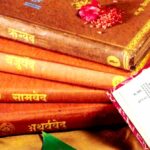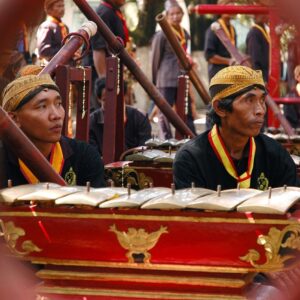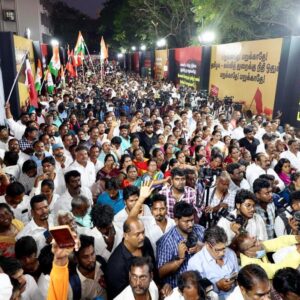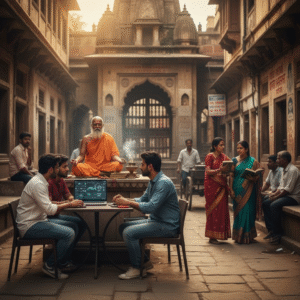Exploring the Evolution of Traditions Amid Modern Challenges
Lucknow– Uttar Pradesh, often referred to as the cultural heartland of India, has long been a repository of traditional family values rooted in deep philosophical and spiritual foundations. However, with rapid urbanization, increased digital penetration, and shifting societal norms, the traditional family structure in Uttar Pradesh is undergoing significant transformation. This raises critical questions about the future of family values and the philosophical underpinnings that can guide them through this evolution.
Key Metrics
- Urbanization Impact: Uttar Pradesh’s urban population increased from 20% in 2001 to 24% in 2021 (Census Data), signaling a shift away from rural, joint-family setups toward urban, nuclear families.
- Marriage Trends: The average marriage age in Uttar Pradesh rose to 23.6 years for women and 26.5 years for men in 2022, reflecting changing societal priorities (National Family Health Survey-5).
- Elderly Care: With over 12% of the population aged 60 and above, concerns about elder care are growing as traditional joint families diminish (Ministry of Social Justice and Empowerment).
- Digital Influence: Over 60% of families in urban Uttar Pradesh report technology influencing their relationships, with screen time often replacing face-to-face interactions (State Digital Literacy Report, 2023).
Philosophical Foundations of Family Values
1. Dharma and the Role of Family
In Indian philosophy, the family is seen as the cornerstone ofdharma (duty), where individuals are nurtured to fulfill their societal and spiritual roles.
- Joint Families: Rooted in Vedic traditions, joint families emphasize collective responsibility, interdependence, and respect for elders.
- Transition to Nuclear Families: While nuclear families offer independence, they challenge traditional support systems that have historically ensured emotional and financial security.
2. Gandhian Values
Mahatma Gandhi viewed the family as a microcosm of society, where nonviolence, simplicity, and mutual respect were cultivated.
- Modern Implications: In urbanized contexts, the emphasis on simplicity and shared responsibilities offers a framework for balancing personal aspirations with familial obligations.
3. Bhakti Movement Ideals
The Bhakti movement, which emphasized love and devotion, continues to inspire family values that prioritize emotional bonds over material pursuits.
- Example: Festivals like Janmashtami and Raksha Bandhan celebrate familial ties and reinforce values of love, loyalty, and protection.
Modern Challenges to Traditional Family Values
1. Urbanization and Nuclear Families
The shift to urban living has necessitated smaller family units, often at the expense of intergenerational bonds.
- Impact: Elders increasingly face isolation, with over 30% of senior citizens in urban areas reporting a lack of familial support (HelpAge India Report, 2023).
2. Digital Disruption
Technology has redefined communication within families, with both positive and negative consequences.
- Benefits: Digital platforms help families stay connected across distances.
- Concerns: Excessive screen time among youth often leads to reduced family interactions, with 40% of parentsin urban UP expressing concerns over their children’s digital habits (State Education and Family Survey).
3. Changing Gender Roles
With greater emphasis on women’s education and employment, traditional gender dynamics within families are evolving.
- Data Insight: Female workforce participation in Uttar Pradesh increased to 23% in 2023, up from 19% in 2015, reflecting a shift toward shared responsibilities in households (Labour Force Participation Survey).
4. Generational Conflicts
The gap between older generations rooted in traditional practices and younger generations adopting modern lifestyles has widened.
- Examples: Disputes over marriage choices, career paths, and lifestyle preferences often highlight these conflicts.
Preserving and Evolving Family Values
1. Strengthening Intergenerational Bonds
- Elderly Support Schemes: Programs like the National Social Assistance Programme (NSAP) and state-led initiatives such as Vridhashram Yojana aim to support senior citizens and promote family-based care.
- Community Centers: Urban areas are seeing a rise in family-friendly spaces where different generations can connect, such as cultural hubs and public parks.
2. Balancing Tradition with Modernity
- Education on Values: Schools in Uttar Pradesh are increasingly including lessons on Indian family traditions and moral values to instill respect for heritage among youth.
- Festival Celebrations: State-backed events that emphasize traditional family roles, such as the recent Raksha Bandhan Mahotsav, have gained popularity.
3. Technology as a Connector
- Digital Literacy Programs: Initiatives like Digi Shakti encourage responsible technology use, enabling families to leverage digital tools for communication without undermining personal interactions.
Philosophical Solutions to Modern Challenges
- Adopting Gandhian Simplicity
- Encouraging minimalist lifestyles that prioritize meaningful relationships over material excess.
- Fostering Bhakti-Inspired Devotion
- Using festivals and rituals as opportunities to reconnect with family and reinforce emotional bonds.
- Reinforcing Collective Dharma
- Promoting shared responsibilities within families, ensuring care for elders, children, and all members of the household.
Conclusion: Charting the Path Forward
Uttar Pradesh stands at a crossroads in defining the future of its family values. While modern challenges such as urbanization and digitalization test the resilience of traditional structures, the state’s philosophical foundations provide a guiding light.
By blending tradition with modernity, Uttar Pradesh can ensure that its family values evolve to meet contemporary needs while preserving the cultural and emotional depth that has defined them for generations. In this balancing act lies the future strength of the state’s social fabric.





